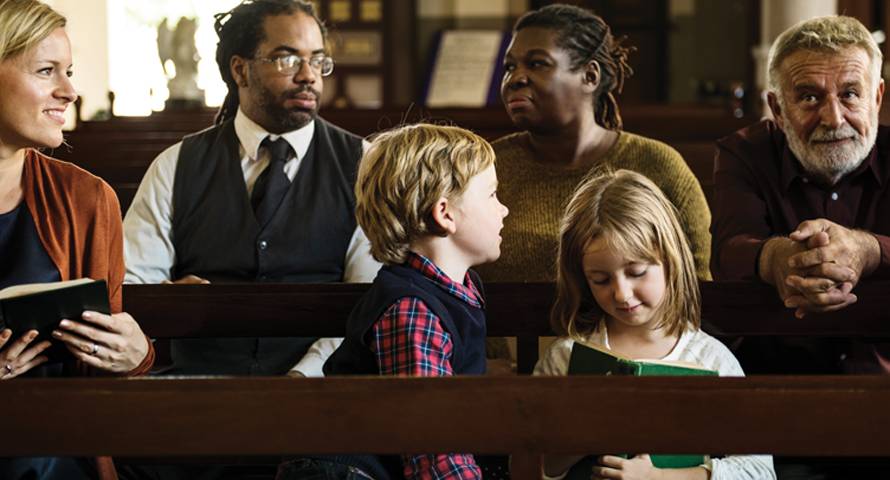I wrote a blog a while back that explored the Pew Research findings that showed that the fastest growing label in the “religion” category was “Unaffiliated” or not connected to any particular religion. This category was filled primarily with Millennials who had at one time associated themselves with organized religion. I was curious why this trend was happening so I read a number of blogs written by Millennial authors about why they had chosen to leave the church.
 By and large, the overall message was “We don’t feel like we belong.”
By and large, the overall message was “We don’t feel like we belong.”
I could relate, but on a different level. If you’ve ever visited a foreign country, you probably can to. A few years ago, Luke and I had the chance to go to Europe and I loved every minute of it BUT the whole time I was there, I felt out of place, like I didn’t belong. I may have been there, dressed in the right clothes, paying with the right money, and eating the right food, but I didn’t feel like I belonged. Even when things were done to make us feel more at home, it still couldn’t eradicate the feeling of not belonging. Why?
We didn’t know anyone – Everyone was new to us; a stranger. Even the friendliest people we met were still new. We had no relationships with them nor them with us, so our conversations were necessarily surface and without depth.
We weren’t familiar with the customs – It’s funny how the littlest thing can remind you that you are out of your element, things like asking for “just water” at a restaurant and having a chilled bottle of seltzer water delivered to your table or not walking on the right side of the road because that is the bike lane and they will run you over. These moments, seemingly small, were poignant reminders we were in unfamiliar territory.
We didn’t speak the language – Obviously one of the most visible ways we felt unaffiliated was in terms of just speaking to those around us. Trying to figure out if what we were paying for an ice cream cone was actually the right amount could lead to times of intense stress. Reading maps and taking the subway? Yeah, we lived Finding Dory.
So what does this have to do with the church?
If the bloggers I read are accurate in their assessment, they share much the same feelings when they are in church. It makes sense then that they would want to leave and find somewhere where they feel they belong.
And, if during their lives as children in church they spent most, if not all, of their time separated from the older generations and not in attendance for corporate worship or congregational gathering times, the feeling of not belonging would simply be a natural occurrence, an expected consequence.
They wouldn’t know anybody – Or perhaps, more accurately, they wouldn’t be known by anybody. If coming into “big church” is a new experience and the majority of people attending are new to them, it would not feel like a community they were a part of or were familiar with. It’d be like going to a new country in a way.
They wouldn’t know the customs – Every church has a liturgy; a way of worshiping together. Some follow traditional liturgical practices that have been passed down for centuries; some just have a habitual way of going about church service (song, welcome and greeting, song, song, prayer, offering, song, sermon, prayer, son…something like that). When to stand, when to sit, how to “pass the peace”, how to sing, when to clap, when to go up front, etc. – these customs help create the atmosphere that is unique to that church.
How foreign it can feel if it’s never been experienced before and how unusual that must feel when it is happening in a space where you’ve been attending for most of your childhood and youth.
They wouldn’t know the language – Almost every church I’ve attended has some time where the congregation participates in some way praying, reciting, or singing together. In some churches, especially more liturgical ones, there are certain things that are to be said at certain times. For the inexperienced, I imagine this could feel quite intimidating and at times isolating.
What can we do?
My encouragement would be this: Find ways to connect the older and younger generations in meaningful relationships where they know each other names long before the young ones head off to college AND seek to create space where the whole congregation can engage in worship and fellowship together before the young people are launched into completely unknown territory.
Give them a chance to know and feel like they belong before they even arrive.
Part of the fun of visiting a new place is that you don’t know everything. The same holds true with church. There should always be more to know of Christ and of each other and there should always be a certain sense of stretching and discomfort as we truly engage in living life together as community.
However, recognizing that transition is difficult and we sometimes need a bridge to make the journey, there’s nothing wrong with creating space for relationships and times of corporate worship to reinforce the message for young people that they most certainly do belong.
For more information about
- Kids in Worship
- Determining which Type of Family Ministry model works best for your church
- Discipleship in Intergenerational community
- Encouraging the continued conversation through Practical Discipleship at Home
- Seminars, Workshops, Coaching
Check out to ReFocus Ministry or “like” our Facebook page. Join our conversation at theReFocus Family and Intergen Ministry group on Facebook.
About this Blog

Refocus Ministry was started by Christina Embree, wife to Pastor Luke, mom to three wonderful kids, and church planter at Plowshares BIC. With years of experience in family ministry and children’s ministry, she is passionate about seeing churches partnering with families to encourage faith formation at home and equipping parents to disciple their kids in the faith. She recently graduated with a Masters of Arts in Ministry focusing on Family, Youth and Children’s Ministry at Wesley Seminary, she also blogs at www.refocusministry.org and is a contributing blogger at D6 Family, ChurchLeaders.com, and Seedbed
*The advertisements at the bottom of this page are chosen by WordPress, not by ReFocus Ministry, and do not necessarily reflect the opinions and values of the author.


